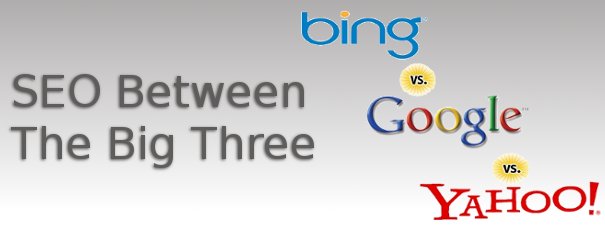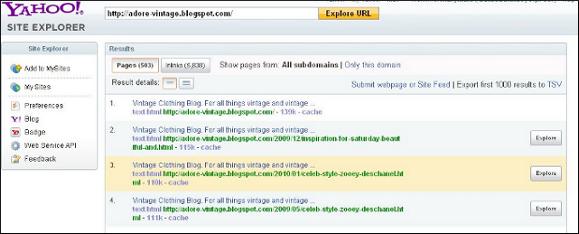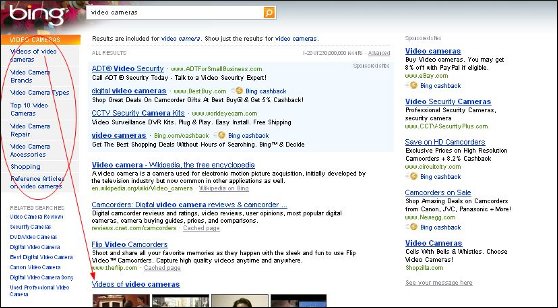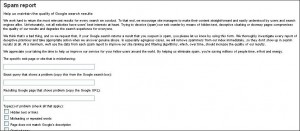The Differences Between SEO for Yahoo!, Bing, and Google

The fundamentals of SEO apply regardless of which search engine you want to rank in, but each of the major ones has some finer points, so let’s get right to them.
Yahoo!
You may have heard that participating in Google AdWords would penalize your site in other search engines, but Yahoo! insists that this is not the case. They really have nothing to gain by dropping sites that are relevant, and if they did, they’d be cutting off their nose to spite their face. But the age of your domain is important because a longer track record ups a site’s relevancy. It’s only one score, and it’s one you can’t do much about, but it’s something to keep in mind: SEO is a long term idea.
Yahoo! suggests registering domains for more than one year at a time. It gives your site a long-term focus and keeps you from accidentally losing a domain because you didn’t find the email that it was time to renew. They also suggest you should buy the same domain name with and without dashes. This will keep you from losing so-called type-in traffic. However, all SEO pundits say that the more dashes, the harder it is to type in, and the more spam-like it will look, so don’t get carried away.
Like with Google, with Yahoo!, relevant inbound links from high quality pages are gold. This is one of the hardest parts of SEO, but it’s one where there really aren’t many shortcuts. You want links from sites that belong to the same general neighborhood of topics as yours. If you have a site that sells organic flour, a link from a fishing tackle site isn’t going to help you much, if at all. And when it comes to giving out your own links, be careful here as well. If you link to a lot of sites that are or could be penalized, you could be hurting yourself by association. If you sell text links, check out every site that buys from you to make sure you’re not endorsing spam, porn, or other content that search engines frown upon.
Make use of Yahoo Site Explorer to see how many pages are indexed and to track the inbound links to your site. The first screen shot shows the results of the analysis of one site. As you can see, there are 503 pages on the site, and 5,838 inlinks, each of which you can explore further. To maximize crawling of your site and indexing of pages, publishing fresh, high quality content is the key.

Bing
There have been some case studies about what Bing looks at compared to Yahoo! and Google when ranking sites. When ranking for a keyword phrase, both Bing and Google look at the title tag 100% of the time. Prominence is given a little more weight with Bing than with Google, while Google favors link density and link prominence more than Bing. Bing evaluates H1 tags, while Google does not, and Google considers meta keywords and description while Bing does not. What that all boils down to with Bing is that having an older domain and having inbound links from sites that include the primary keyword in their title tags (another way of saying relevant inbound links) are keys to optimizing for Bing. Like optimizing for the other major search engines, link building should be a regular, steady part of your SEO effort.
With Bing, it’s easier to compete for broad terms. With Bing, keyword searches result in Quick Tabs that offer variations on the parent keyword. This has the effect of bringing to the surface websites that rank for those keyword combinations. The goal is for content-rich sites to convert better than sites with less relevant content. The multi-threaded SERP design brings up more pages associated with the primary keywords than would come up with a single-thread SERP list. Also, Bing takes away duplicate results from categorized result lists. This allows lower ranked pages to be shown in the categorized results.
The Bing screen shot shows the results for a search on “video cameras.” To the left is a column of subcategories. Results from those subcategories are listed below the main search results. While there are some differences to SEO for Bing, the relatively new search engine isn’t a game changer when it comes to SEO.

It sometimes seems as if SEO is synonymous with “SEO for Google,” since Google is the top search engine. And it also seems that when it comes to SEO for Google, a lot of the conventional wisdom has to do with not displeasing the Google search engine gods by doing things like cloaking, buying links, etc.
The positive steps toward SEO with Google include keywords in content and in tags, good inbound links, good outbound links (to a lesser extent), site age, and top level domain (with .gov, .edu, and .org getting the most props). Negative factors included all-image or Flash content, affiliate sites with little content, keyword stuffing, and stealing content from other sites. It isn’t so much that Google wants to seek out an destroy sites that buy links, but they want the sites with actual relevant, fresh content to have a shot at the top, and with some sites trying to game the system and get there dishonestly, Google has to find a way to deal with these sites without hurting the good sites.
In fact, Google wants users to report sites that are trying to cheat to get to the top of the search engines. On the screen shot, you can see a copy of the form found at https://www.google.com/webmasters/tools/spamreport?pli=1 for reporting deceptive practices. You have to be signed in to your Google account to use this, by the way. They want to get away from anonymous spam reports.








